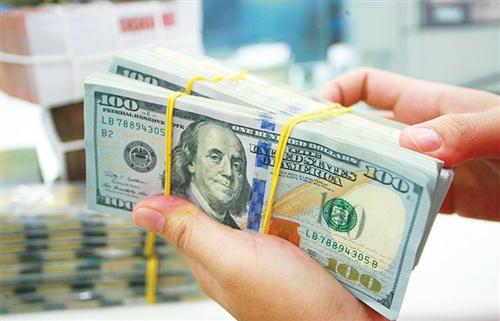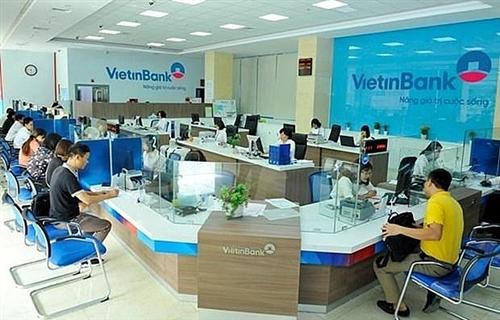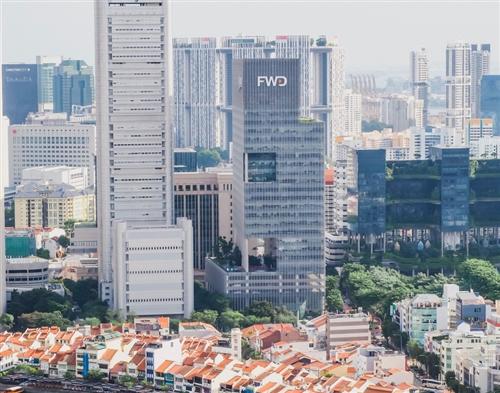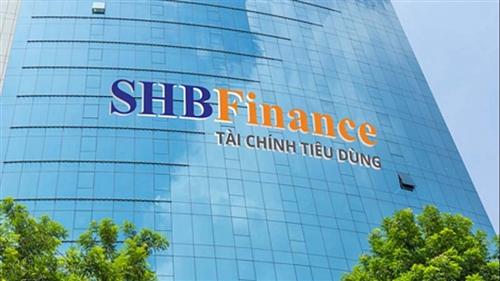Consumers risk higher defaults amid lending sector fluctuation
Consumers risk higher defaults amid lending sector fluctuation
Vietnam’s lending sector appears increasingly susceptible to the boom and bust of the global health crisis, with an uptick in sour loans fanning fears that it would dig into the growth of the whole market.

Consumer finance firms such as Home Credit are undergoing downgrade reviews
|
Experts are raising concerns over consumers falling behind on their credit card and loan payments, which could snowball into higher defaults in the coming months. Some lenders and finance firms have reduced loan originations as a result of reduced incomes from their customers.
Le Minh Hung, Governor of the State Bank of Vietnam (SBV) said that credit growth for the first two months of 2020 stood at a meagre 0.1 per cent on-year – much lower than the previous 0.85 per cent of the same period last year.
Meanwhile, loan surplus to sectors hit by coronavirus has reached VND2 quadrillion ($86.96 trillion), equal to 23 per cent of the banking sector’s total outstanding loan balance as of April 10.
As of March 31, the credit balance was estimated at nearly VND8.302 trilllion ($360.96 million), surging by 1.3 per cent compared to December 2019. The monthly growth witnessed a steady increase stretching from January (0.1 per cent) and February (0.07 per cent) to March (1.1 per cent).
The SBV has also taken relief measures to mitigate a sharp contraction sparked by the pandemic including cutting costs, slashing lending rates, imposing moratoriums on loan repayment, and delaying dividend payouts. These decisions illustrate fears of an immediate pullback in growth as well as concerns about firms’ inability to generate more revenue amidst the contagion.
Despite lending rates reduction of 2-2.5 per cent on a massive scale, the shrinking appetite of expanding production and consumption have taken a toll on the Vietnamese economy.
Piles of worrisome assets
Just a few days ago, global ratings agency Moody’s announced it is mulling over downgrading three local finance firms namely FE Credit, Home Credit, and SHB Finance, and two banks including VPBank and SHB as of April 7.
According to Moody’s, the consumer finance industry in Vietnam is vulnerable to the disruptions given its risky borrower profile and heavy reliance on wholesale funding.
The review for downgrade of FE Credit, Home Credit, and SHB Finance reflects Moody’s expectation that the economic shock caused by the outbreak could impede asset quality, profitability, and liquidity due to the risky profile of its borrowers and heavy reliance on wholesale, confidence-sensitive funding.
Particularly, these three finance firms are of high exposure to unsecured products and are targeting the low-income sector, which is the most vulnerable to economic fallout.
“The recent surge in unemployment would hurt the overall debt-servicing-capacity of borrowers. Out-of-work customers could miss loan payments and suffer plunging credit scores. Hence, it’s hard to say exactly when borrowers will have enough cash pay back loans,” economist Can Van Luc told VIR.
Furthermore, the SBV’s Circular No.18/2019/TT-NHNN dated November 2019 limiting unsecured consumer-finance personal loans will pressure the business models of more-exposed companies in Vietnam over the next few years.
Data from market analysis firm FiinGroup revealed that the consumer finance segment grew 59 per cent on-year in the period of 2013-2017. In 2018, overall growth registered at 30.4 per cent. The slowdown is attributed to market development, growing from a larger base, and the increasing exposure to real estate loans, as well as the saturation of some key consumer finance products such as installment loans for home appliances and electronics.
As such, newer and smaller finance firms that concentrate on cash loans may find it harder to shift their business models due to Circular 18.
“They need to develop additional product expertise and distribution channels to diversify away from cash loans. This might entail greater investment cost and execution risk in testing new business models and product lines,” Fitch Ratings commented.
Meanwhile, Moody’s also stated, “Consumer finance firms rely heavily on wholesale funding, which exposes them to potential refinancing risk if the disruption to the financial markets persists. The companies’ liquid resources are modest, and a drop in collections could therefore squeeze liquidity.”
Long-term decisions
If customers begin to default, not only consumer finance firms will be affected. In the longer term, those delinquencies could get factored into credit reports, hurting customers’ ability to borrow for many years.
On the other hand, the public health challenge is the biggest test for bank stability for more than a decade, while banks’ rate reduction will crimp profits on their bread-and-butter lending businesses.
The rates banks charge on some large categories of loans are tied to benchmarks that have fallen in recent weeks.
Furthermore, the risk from sour loans are substantial. Although lenders are much stronger now since they have built up capital under acute regulatory scrutiny such as Basel II, many are still wondering if the buffers will be big enough. Specifically, some lenders, such as Agribank, Kien Long Bank, and Viet Capital Bank, are still nowhere to be found in the Basel II race.
“Rate cuts and loan tolerance may help borrowers and delay defaults in an immediate crisis, but in the longer term, they make life harder for lenders struggling to generate profits,” noted Luc.
It is estimated that the non-performing loans accounted for 12 per cent of the whole total outstanding loans, and it is likely to surge sharply down the road.
Some lenders also readjust their expectations on 2020 growth, such as Nam A Bank lowering its pre-tax profit target by 13.5 per cent on year, to VND800 billion ($34 million) in 2020.
SHB also plans to cut its 2020 profit target, forecasting that it would be at least VND1 trillion ($43.47 million) lower.
Analysts at Yuanta Securities trimmed their expectation of Vietcombank’s loan growth to 13 per cent on-year in the face of global headwinds.
SHB’s loans to small- and medium-sized enterprises in Vietnam, which made up for 31 per cent of gross loans at the end of 2019, will pose renewed asset risk since these groups are short of financial buffers to withstand revenue shocks. VPBank’s is also feeling growing pressure from the quality of its loans to sectors at-risk such as export and tourism-related firms, Moody’s cautioned.
Le Duc Tho, chairman of VietinBank, said debts from virus-affected customers at the bank currently made up for 11 per cent of total outstanding loans, and it is predicted to soar remarkably.
“The heightened volatility and uncertainty have crippled corporate production and people’s lives, as well as the ability to meet loan repayment of affected customers. This consequently factored in a rally of potential debt and bad debt,” said Nguyen Quoc Hung, director at the SBV’s Credit Department.
Market watchdogs warned that large firms are often even more cash-poor and in hock to nervous creditors, and they are harder to replace or revive if they fail. Also, a surge in bad assets on the balance sheets of Vietnamese lenders would spook investors and drag down their stocks.
“Banks should stay vigilant and responsive to the economic fallout by strengthening their risk management, such as well-prepared risk provisions. The higher the loan-loss provisions, the stronger the ability to cope with the crisis,” added Luc.
|
- Prime Minister Nguyen Xuan Phuc stated last week that the government would provide some VND300 trillion ($13 billion) as a relief measure in financing for businesses hit hard by the COVID-19 pandemic, while ensuring sufficient capital to prop up the economy. PM Phuc reaffirmed that the Vietnamese government would put best effort to contain the virus and create preferential conditions for enterprises being alive. Previously, State Bank of Vietnam’s Deputy Governor Dao Minh Tu asked 20 banks to offer a minimum of 2-per-cent lending rate reduction to cushion cash-strapped businesses. - The government promulgated Decree No.41/2020/ND-CP dated April 8, 2020 on extension of deadline for tax and land use fee payments, which would be five months from the deadline. According to the Ministry of Finance, more than 700,000 enterprises would be allowed to delay their payments as a way of shoring up capital at that time. Notably, subjects eligible for the tax extension include credit institutions and foreign banks in Vietnam that roll out relief solutions to alleviate the challenges as well as assist distressed customers. |























